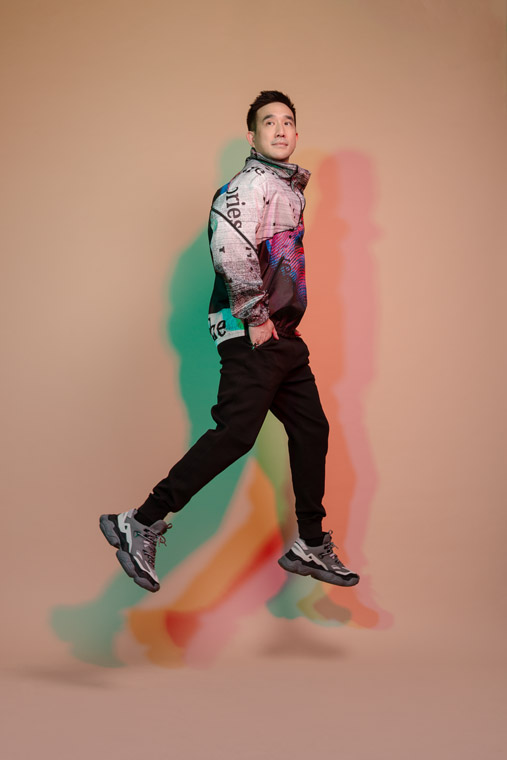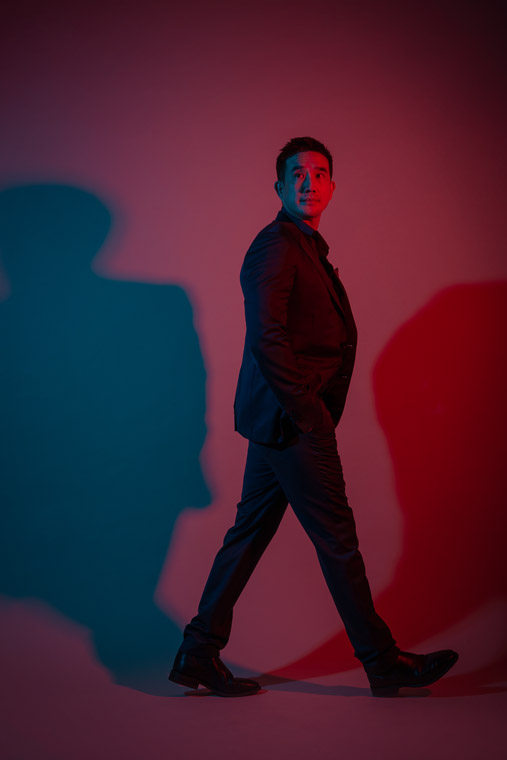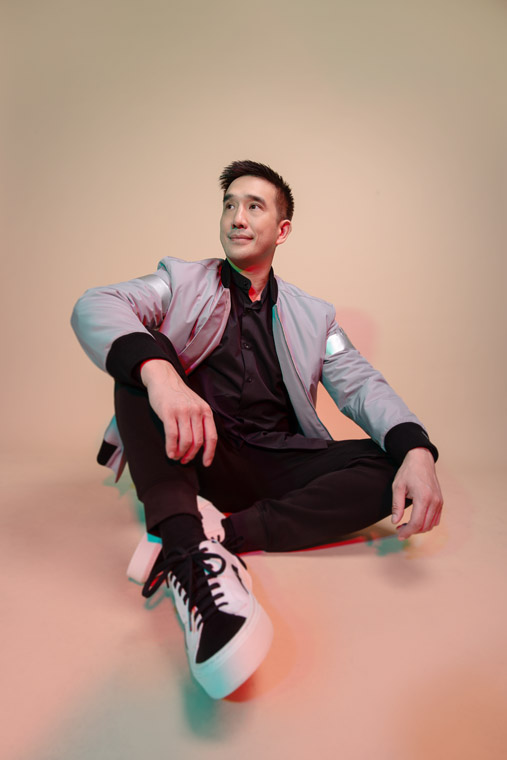“My earliest memory of the medical profession was my first Anatomy class at UCL Medical School in London, England,” shares Dr. Alan Cheung, the British-born Consultant Orthopaedic Surgeon and founder of the International Orthopaedic Clinic (IOC) in Singapore.
Cheung, then only 18 years old, recalls apprehensively standing in front of 20 donated corpses waiting to be dissected. “The smell of preservative was overwhelming and my 100 fellow students were shocked into silence. As the cadavers under the sheets were revealed, I heard a heavy thump next to me as my classmate George, a large rugby player, fainted clean away. He would later claim that he overindulged in tequila during Freshers’ week, but we knew better!”
As young medical students, Cheung reveals that he and his contemporaries would witness more harrowing sights, but this was only the beginning. In later months, however, they would learn the mysteries of the human body from the generous souls who chose to donate themselves to medical science. “I then realized how incredible the design of the human body was and this was the start of my journey to becoming a surgeon.”
(Related read: Help your body clean itself)
 Alan wears windbreaker, track pants, and sneakers from HUGO
Alan wears windbreaker, track pants, and sneakers from HUGO
- A PAINFUL PATH TO SUCCESS
- NAVIGATING A NEW LANDSCAPE
- THE DOCTOR WILL SEE YOU NOW
A Painful Path to Success
For Cheung, now 44, becoming an Orthopaedic surgeon was a little more painful compared to what he and his classmates went through in med school 101.
“The catalyst to becoming an Orthopaedic surgeon was a series of missed tackles while playing at Cambridge Rugby Club, which led to dislocating both my shoulders. But the more I think about it, the experience of injury and ensuing rehabilitation was actually a great experience. It taught me, first-hand, what it was like to be an athlete recovering from a sporting injury. It also planted a seed of curiosity about the structure and function of the human body. Going forward, my positive experience as a trainee at the Royal National Orthopaedic Hospital in Stanmore also cemented my desire to become an Orthopaedic surgeon,” reveals Cheung.
 Alan wears a shirt and suit from Ermenegildo Zegna
Alan wears a shirt and suit from Ermenegildo Zegna
He adds, “I believe that having played many sports including rugby, martial arts, athletics, golf, and skiing, I almost immediately know where my patients are coming from when they tell me about their own injuries. I also carry a variety of shoulder, elbow, knee, and spine injuries so I can sympathize and understand what they are going through.”
When I asked if Orthopaedic surgeons are able to perform their chosen sport in a better way because of their extensive knowledge of how the human body works, the mild-mannered doctor chuckles a bit and says, “Enabling me to perform better at sport is a completely different story. Otherwise, we might all be Olympians! But the reality is, my knowledge of the human body, and surgical and sports science training, enables me to effectively recognize and treat sports injuries. What’s more, the opportunity to have met world champions from a variety of sporting disciplines, I recognize that becoming successful in a particular sport requires skill (dedicated and well supervised training over time), sacrifice, optimal nutrition, and passion.”
- A PAINFUL PATH TO SUCCESS
- NAVIGATING A NEW LANDSCAPE
- THE DOCTOR WILL SEE YOU NOW
Navigating A New Landscape
A little over five years ago, Cheung’s parents retired and decided to move back to Hong Kong. To allow him to be closer to them and at the same time, look for new opportunities, he decided to move to Singapore.
“I really enjoy living and working here,” says the Singapore permanent resident. “The British NHS (National Health Service) is the largest employer in Europe and tends to be over managed and slow to effect change. What I really like about the Singapore medical system, which I think is one of the best in the world, is that it provides great care. It is also highly efficient and cost-effective. Coordinated changes to healthcare can be implemented overnight across the island, as we have seen with the excellent response to COVID-19. Singaporean doctors also tend to be more collegiate and gel together better than their UK counterparts. This leads to a more sensible and coordinated response as a profession when challenges occur. Finally, Singapore is a leading medical hub in Southeast Asia and I have access to Orthopaedic technologies, such as robotic surgical equipment, which might not be readily available on the NHS.”
Prior to establishing IOC, Cheung was a consultant at Ng Teng Fong General Hospital (NTFGH). While the experience gave him a broader view of Singapore’s general medical landscape, Cheung felt there was something amiss. “I have nothing but fond memories of my time at NTFGH and I’m grateful for the capable leadership that exists there. However, I am not a research- or administration-orientated person. As a doctor, I enjoy interacting and getting to know my patients the most, and using my surgical skills to improve their lives. Because of that, I decided to start my own clinic in order to focus solely on patients, and to experience the challenge of running my own practice. Professor Gamaliel Tan, my HOD at NTFGH, was extremely supportive of this decision and gave me excellent guidance as I was leaving. He told me that whether I was a doctor in public or private practice, it was important to do good and strive to be a better person, and I have always tried to follow his advice.”
With the success of IOC, Cheung says that his deep passion for sports drives his practice. “My philosophy as a sports surgeon is to treat every athlete and patient as a unique entity who requires a program of treatment suited to their injury and sporting discipline. To do this, I must get to know them well and understand how the injury impacts their daily life, work, and sporting pursuits. Outside the clinic, I have been fortunate enough in the last year to cover multiple mixed martial arts events for One Championship and One Warrior Series as a Ringside doctor, in both Singapore and Tokyo. I am also a World Rugby Educator and have been a Matchday doctor for international Rugby events like the HSBC Sevens and SuperRugby. I was also grateful to support the Wrestling Federation of Singapore at the recent SEA Games in my capacity as Team Doctor. I also witnessed the National Wrestling and Jiu Jitsu athletes – man of whom I train alongside at Evolve MMA – win multiple medals at the SEA Games.”
Cheung is also a Fellowship-trained joint replacement and revision surgeon, with a particular interest in robotic surgery. In addition to athletes, he also sees patients with worn out osteoarthritic joints in need of a hip or knee replacement. “You could say I really enjoy being able to see and treat a wide variety of patients of all ages and backgrounds,” he concludes.
 Alan wears shirt, bomber jacket, track pants, and sneakers from HUGO
Alan wears shirt, bomber jacket, track pants, and sneakers from HUGO
- A PAINFUL PATH TO SUCCESS
- NAVIGATING A NEW LANDSCAPE
- THE DOCTOR WILL SEE YOU NOW
The Doctor Will See You Now
Some might assume that seeing an Orthopaedic surgeon only applies to those who have a sports injury. This assumption, Cheung reveals, is a misconception. “Many joint and muscular problems can occur even without a sports injury. If you or your family are in pain or have any physical concerns, I would strongly recommend seeing an Orthopaedic surgeon.”
Cheung makes a case for this and tells us his experience during the events that followed COVID-19. “Initially, there was a slowdown in musculoskeletal injuries as people stayed home. Then I began to see a new wave of injuries – mainly of the knee, hip, and ankle as more people took up activities like running and HIIT classes during the circuit breaker. Now, I also see many patients with neck and spine problems, resulting from long hours of sitting down and online meetings. Also, many patients who have nursed long-term problems, such as anterior cruciate ligament tears and shoulder injuries have decided to undergo surgery as they have plenty of time to recover and are not playing sport or travelling.”
In addition to observing and treating these new ailments brought about by COVID-19, Cheung also takes this time to reflect and assess how things in his life and work are going. “Despite everything happening now, I am very grateful and feel blessed to have made Singapore my home. Just recently, IOC supported the first post-COVID sporting event in Singapore, the One Championship Reign of Dynasties MMA competition. I envisage that we will continue to provide medical support to a variety of sporting events in Southeast Asia as the region opens up. I am also delighted to continue providing bespoke services to injured athletes, as well as patients who wish to undergo robotic joint replacement in Singapore and beyond.”
For more information on Dr. Alan Cheung and his practice, click here






 Alan wears windbreaker, track pants, and sneakers from HUGO
Alan wears windbreaker, track pants, and sneakers from HUGO
 Alan wears a shirt and suit from Ermenegildo Zegna
Alan wears a shirt and suit from Ermenegildo Zegna
 Alan wears shirt, bomber jacket, track pants, and sneakers from HUGO
Alan wears shirt, bomber jacket, track pants, and sneakers from HUGO




 Back
Back